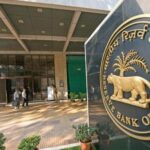No election result is monocausal. It is usually a combination of economic, political and social factors, but the rising cost of living seems to have been an important ingredient in the US results.
The Trump victory was bookended by the end of Conservative Party rule in the UK and the collapse of the ruling political alliance in Germany.
There are a few lessons for economists as well. The most important one is that voters think about price levels rather than just the rate at which they are changing. The price of a cup of coffee or a bag of groceries has materially changed over the past four years in many rich countries.
Even tourists feel it. So inflation, or the rate at which prices are going up, may have been brought to heel; but the inflation spike that came before has left the price level way above what voters are comfortable with.
The lingering effect of past inflation on current voting behaviour—and perhaps economic behaviour such as wage demands or profit calculations— also means that choices are made in the shadow of the past rather than being solely based on what lies in the future.
In more technical language, inflation expectations can be adaptive rather than rational, especially when policy credibility has been rattled. Macro policy thus needs to be more conservative than usual if it is being crafted in the wake of a burst of unexpectedly high inflation.
Related to all this is the idea of rational inattention to inflation. Surveys show that citizens often have no view on the trajectory of inflation in normal times. They are inattentive to prices.
This is rational behaviour because it does not make much sense to spend our limited capacity to process such information when prices are generally stable. There are more pressing problems to focus on.
However, it also means that inflation can suddenly become a big issue among people once a certain threshold is crossed. Persistent price pressures could make inflation the talk of the town in just an instance.
It is as if a light has been flicked on. Such a threshold at which inattention is replaced by attention is quite different from the threshold inflation that is estimated by central banks to arrive at their formal inflation targets.
The costs of inflation are mostly analysed in terms of whether prices are rising faster than nominal wages, or whether purchasing power is getting redistributed among different social groups, or if companies with market power will use higher costs to push up the prices of what they sell. These fall in the realm of economic or financial analysis.
However, inflation imposes not just financial but also cognitive costs on households. A research paper by Alberto Binetti, Francesco Nuzzi and Stefanie Stantcheva on how people understand inflation, based on a survey of 3,055 people in the US, should be read along with an earlier survey by Stantcheva on why people dislike inflation.
One of the most stark findings in their survey is that high inflation complicates decision making in families. They have to make costly adjustments in their household budgets as the basket of stuff they buy has to be recalibrated. Higher prices increase the complexity of household decisions. These cognitive costs that make people dislike inflation are not part of the standard analytical toolbox.
Economists have also traditionally looked at “shoe-leather costs,” or the amount a person wears out his or her shoes by walking around during episodes of high inflation. There are two factors at play here.
First, the opportunity cost of holding cash is higher when inflation is rising, so people prefer to make more visits to the bank to withdraw cash rather than keeping a big stock of it under the mattress at home.
Second, a person is tempted to move from store to store to figure out good deals when prices are rising. However, it is likely that such “shoe-leather costs” have been minimized in our times because of the rise of digital banking as well as online commerce. Transaction costs are now far lower than before.
The broad upshot is that the behaviour of citizens changes during episodes of high inflation, imposing both economic as well as cognitive costs on them.
In a recent review of the two papers mentioned in this column, behavioural economist Robert Shiller, who first visited similar issues in the late 1990s, writes: “So, why do ordinary people think that inflation is such an important problem?
Part of the explanation must be as Binetti-Nuzzi-Stantcheva note the fact that people are reminded almost daily about retail price changes as they shop. They receive wage increases only infrequently, and becoming unemployed may be no more than a once-in-a-lifetime event for many.”
In a democratic country such as India, which is no stranger to inflation shocks, political leaders are far more sensitive to price changes than their peers in richer countries that have generally had low inflation over the past three decades. They know from experience that high inflation imposes political costs.










